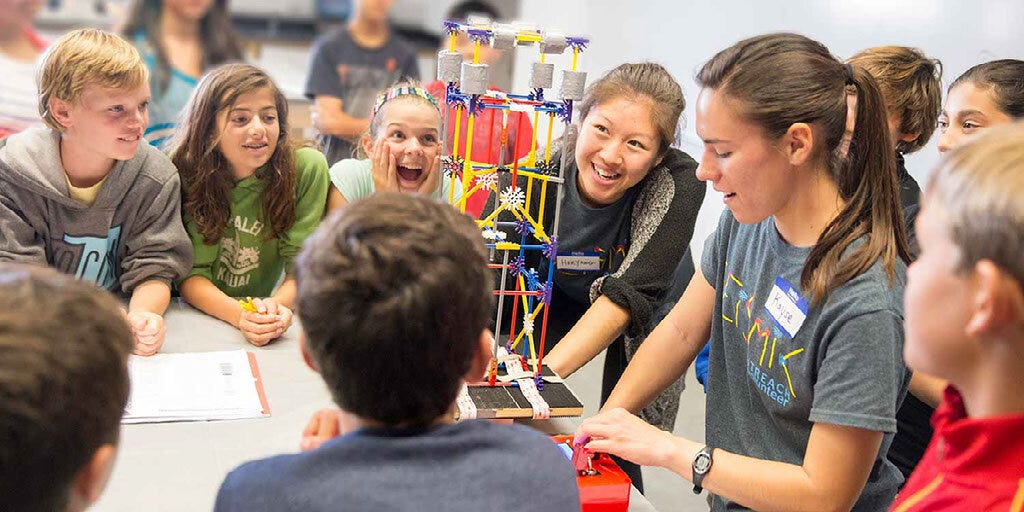Education extends far beyond the confines of the classroom, and one of the most potent catalysts for holistic development is participation in extracurricular activities. While academic pursuits form the foundation of knowledge, extracurriculars enhance a student’s overall growth, fostering skills, experiences, and qualities that shape them into well-rounded individuals. In this exploration, we dive into the multifaceted benefits of extracurricular activities and their profound impact on education, transcending textbooks and traditional learning.
What are Extracurricular Activities?
Extracurricular activities encompass a wide array of structured, non-academic pursuits that students engage in outside of their regular class schedule. These activities can take place within the school or college premises or in the community at large. They come in diverse forms, including clubs, sports, arts, volunteer work, and more.
Benefits of Extracurricular Activities in Education
**1. *Enhanced Time Management*
Participating in extracurricular activities requires students to juggle their academic commitments, social life, and personal time effectively. This invaluable skill in time management often leads to better organization and discipline in their academic pursuits.
**2. *Improved Academic Performance*
Surprisingly, students who actively engage in extracurricular activities often demonstrate improved academic performance. These activities can sharpen skills like critical thinking, problem-solving, and creativity, which can be applied in the classroom.
**3. *Exploration of Interests*
Extracurriculars provide a platform for students to explore their interests and passions beyond the core curriculum. This exploration can lead to the discovery of hidden talents and career aspirations.
**4. *Enhanced Social Skills*
Interacting with peers who share similar interests fosters the development of social skills. Students learn teamwork, effective communication, and how to build positive relationships.
**5. *Leadership Development*
Many extracurricular activities offer leadership opportunities. Taking on roles such as club president or team captain allows students to develop leadership skills that will serve them well in future endeavors.
**6. *Increased Self-Esteem*
Success and recognition in extracurricular activities can boost a student’s self-esteem. It provides a sense of accomplishment and validation beyond academic achievements.
**7. *Stress Relief*
Extracurriculars can serve as a healthy outlet for stress. Engaging in activities that bring joy and fulfillment can help students cope with the pressures of academics.
**8. *Cultural Awareness*
Participating in cultural clubs or international exchange programs can broaden students’ cultural horizons. It promotes tolerance, understanding, and a global perspective.
**9. *Networking Opportunities*
Extracurricular activities often involve interaction with professionals and experts in various fields. This networking can open doors to mentorship and future career opportunities.
**10. *Health and Wellness*
Physical activities like sports and fitness clubs promote a healthy lifestyle. They encourage students to stay active, which can have long-term health benefits.
**11. *Resume Building*
Extracurricular activities enhance a student’s resume. They demonstrate a well-rounded personality and a willingness to invest time and effort beyond academics.
**12. *Community Engagement*
Participating in volunteer work or community service projects instills a sense of social responsibility. Students learn the importance of giving back to their communities.
**13. *Problem Solving*
Many extracurricular activities involve tackling real-world challenges. This fosters problem-solving skills that are valuable in both academic and professional settings.
**14. *Creativity and Innovation*
Arts and creative clubs stimulate imagination and innovation. They encourage students to think outside the box and express themselves artistically.
**15. *Time Management*
Balancing academics, extracurriculars, and personal life hones time management skills. This ability to prioritize and manage tasks is a lifelong asset.
**16. *Career Exploration*
Extracurricular activities can expose students to potential career paths. They provide insights into various industries and professions.
**17. *Resilience and Determination*
Overcoming challenges and setbacks in extracurricular activities teaches resilience and determination. These qualities are essential in facing life’s obstacles.
**18. *Inclusivity and Diversity*
Many extracurricular clubs celebrate diversity and inclusivity. They create a welcoming environment for students of different backgrounds.
**19. *Communication Skills*
Effective communication is a cornerstone of success. Extracurricular activities, especially debate or public speaking clubs, sharpen these skills.
**20. *Emotional Intelligence*
Interacting with peers and mentors in extracurriculars fosters emotional intelligence. Students learn to understand and manage their emotions, a crucial life skill.
Incorporating Extracurricular Activities Into Education
To maximize the benefits of extracurricular activities, educational institutions should encourage and facilitate participation. This can be achieved through the following strategies:
- Diverse Offerings: Schools and colleges should offer a wide range of extracurricular activities to cater to diverse interests and talents.
- Flexible Scheduling: Educational institutions can provide flexible schedules that accommodate extracurricular commitments.
- Mentorship Programs: Establish mentorship programs where experienced students or teachers can guide newcomers in their chosen activities.
- Recognition and Awards: Recognize and celebrate the achievements of students in extracurriculars through awards and recognition ceremonies.
- Integration with Curriculum: Where possible, integrate extracurricular activities with the curriculum to enhance learning.
- Community Involvement: Encourage students to engage with the local community through volunteer work and community service projects.
In Conclusion
Extracurricular activities are not merely a pastime; they are a vital component of holistic education. The benefits of extracurricular activities extend far beyond the confines of the classroom, shaping students into well-rounded individuals equipped with a diverse set of skills and experiences. Encouraging and fostering participation in extracurriculars can be transformative, enriching the educational journey and preparing students for success in all aspects of life.









